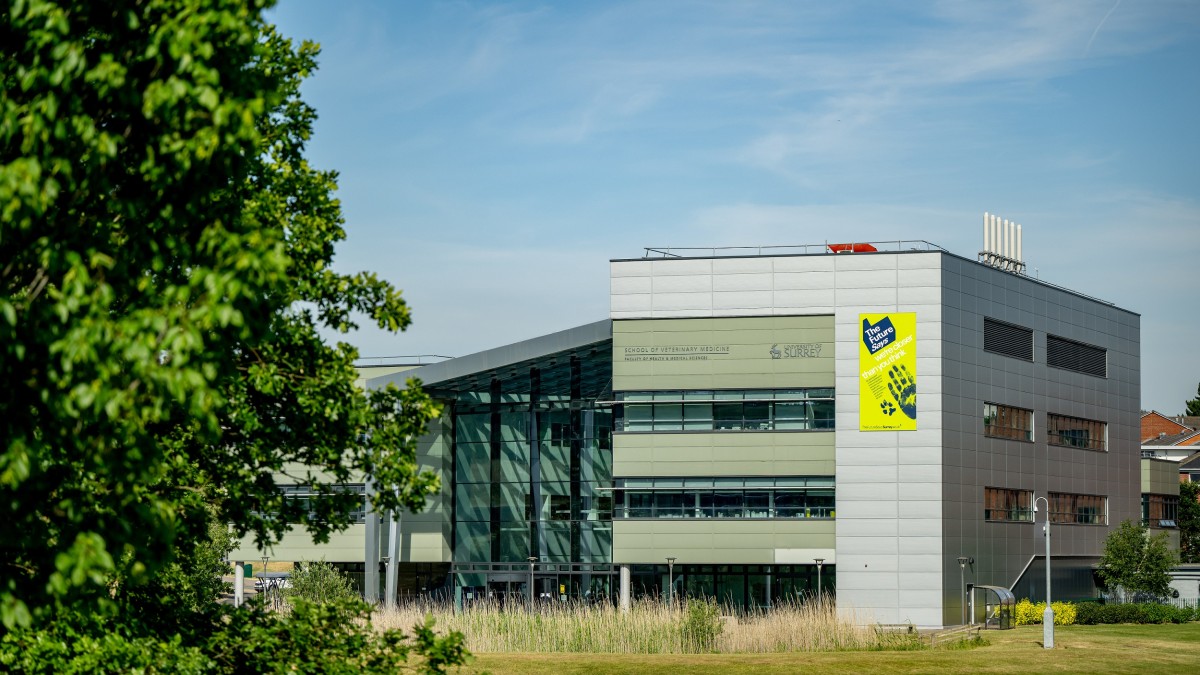Your future in veterinary general practice
Professor Kamalan Jeevaratnam, Head of the School of Veterinary Medicine at Surrey, explains why the UK needs more vets and how the school’s Veterinary General Practice PGCert will boost your employability.

We realise that many practitioners may want to upskill with the latest knowledge and not necessarily specialise – this is what our postgraduate certificate provides.Professor Kamalan Jeevaratnam

Please tell us a bit about your background in veterinary practice.
I graduated from veterinary school in Malaysia and started my clinical career there. I then completed the Royal College of Veterinary Surgeons (RCVS) statutory exam whilst pursuing my PhD at the University of Cambridge. I practised in the UK before moving into full-time academia. My area of clinical interest is in companion animal medicine, and my research focuses on cardiology.
Why did the School of Veterinary Medicine want to introduce the Veterinary General Practice PGCert?
Globally, the emphasis in veterinary care is starting to pivot to high-quality general practice care for our animal patients. Our school has a long history of supporting and delivering high-quality general practice education for students via our distributed model of education. We realise that many practitioners may want to upskill with the latest knowledge and not necessarily specialise – this is what our postgraduate certificate provides.
How will this qualification boost graduates' employability?
It will help practitioners prepare for the RCVS statutory membership examination by building the required knowledge and skills. Passing the exam means you can register as an RCVS member and secure a licence to practise in the UK, Australia, New Zealand, South Africa, Singapore, Hong Kong, the Middle East and other locations around the world. Additionally, the PGCert qualification demonstrates that you are competent in the international standards relevant to veterinary general practice.
Why does the UK need more vets?
A number of factors determine this, primarily:
- There is a growing demand for veterinary care with the exponential growth in pet population.
- In an effort to address food security and be more sustainable, many rural areas in the UK that are involved in livestock production require veterinary care services, and there is a critical shortage of veterinarians in these areas to provide this vital service.
- The Covid-19 pandemic taught us that animal health and care are central to human health – the government requires veterinarians to work in the public health sector and to help with zoonotic disease outbreaks.
- Veterinarians are retiring or leaving the profession and there aren’t enough new vets replacing them, leaving a gap in the sector.
Find out more about our Veterinary General Practice PGCert.
